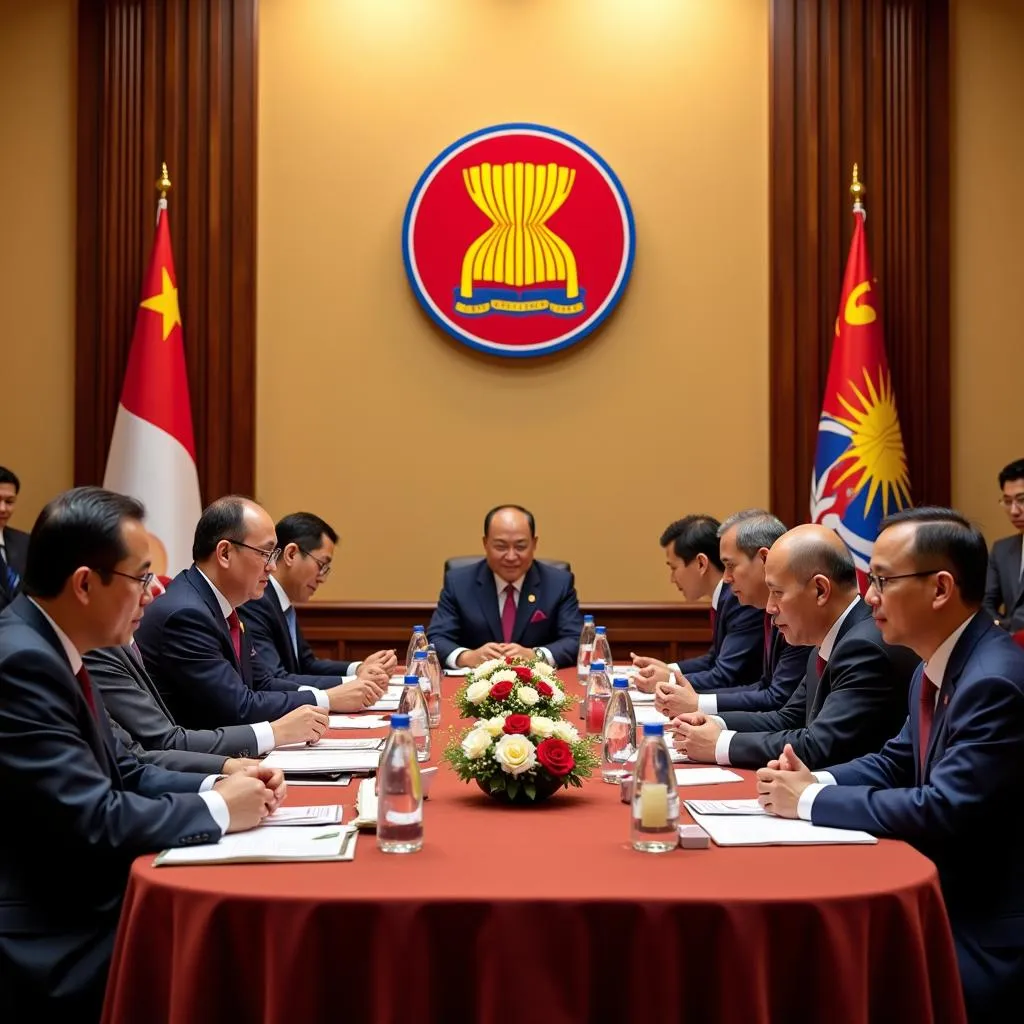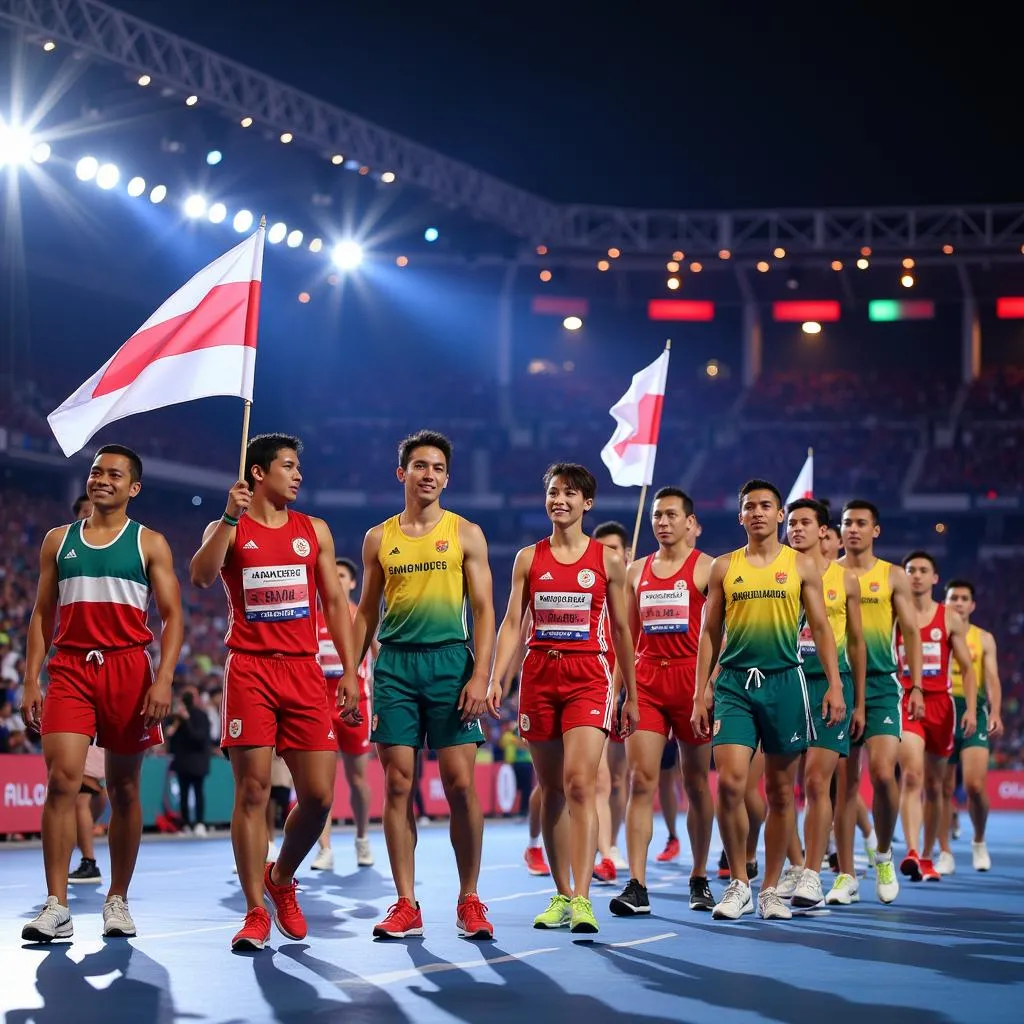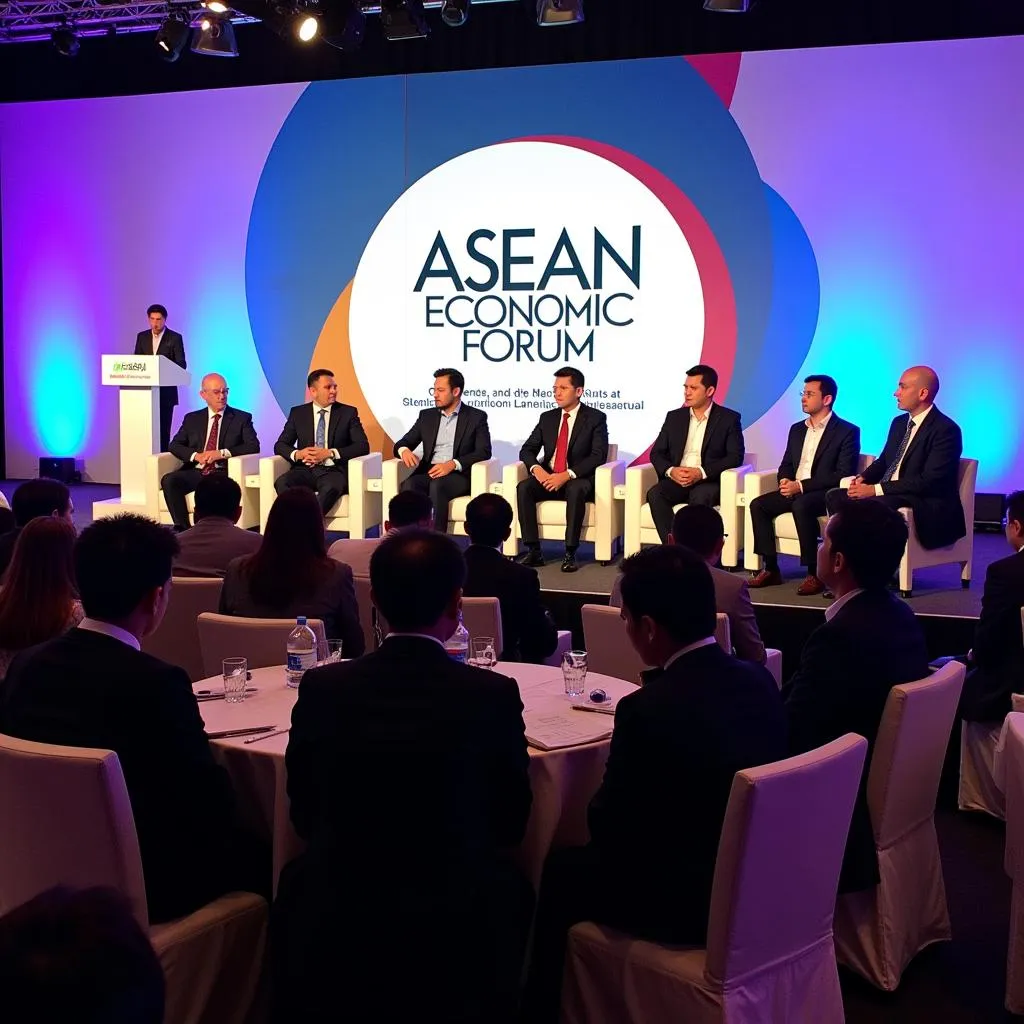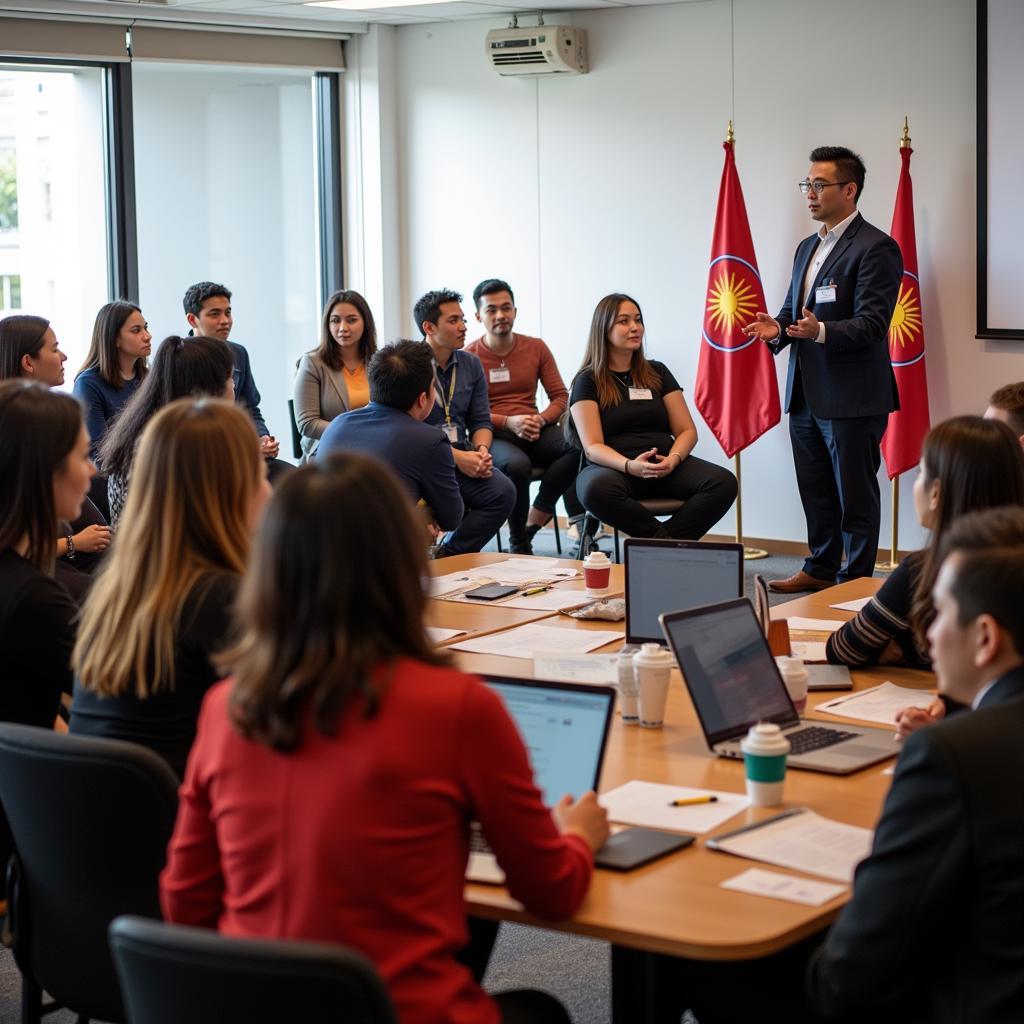The Association of Southeast Asian Nations (ASEAN) stands as a testament to regional cooperation and integration. At its core lies a complex network of institutions working tirelessly to foster economic growth, promote peace and security, and enhance social progress across its ten member states. Understanding the role and function of these “Ase Institutions” is crucial for anyone seeking to engage with this dynamic region.
The Pillars of ASEAN: Unveiling the Key Institutions
ASEAN’s institutional framework is built upon three pillars, each addressing a specific aspect of regional cooperation:
1. The Political-Security Community
This pillar focuses on maintaining peace, stability, and security within the region. Key institutions include:
- ASEAN Summit: The supreme policy-making body, convening biannually with Heads of State or Government from member countries.
- ASEAN Coordinating Council (ACC): Comprises Foreign Ministers, responsible for coordinating ASEAN’s external relations and implementing decisions made at the Summit.
- ASEAN Political-Security Community Council (APSC): Oversees the implementation of policies and initiatives related to political-security cooperation.
 ASEAN Summit Meeting
ASEAN Summit Meeting
2. The Economic Community
This pillar aims to create a single market and production base, enhancing ASEAN’s competitiveness in the global economy.
- ASEAN Economic Community Council (AECC): The main decision-making body for economic integration, comprising Economic Ministers from member states.
- ASEAN Free Trade Area (AFTA): Aims to eliminate tariffs and non-tariff barriers to trade between member countries.
- ASEAN Investment Area (AIA): Seeks to create a more liberal and transparent investment environment within ASEAN.
3. The Socio-Cultural Community
This pillar emphasizes human development, social justice, and environmental sustainability. Key players include:
- ASEAN Socio-Cultural Community Council (ASCC): Responsible for coordinating cooperation in areas like education, culture, health, and social development.
- ASEAN Foundation: A non-profit organization that promotes greater awareness of ASEAN and supports community building initiatives.
- Southeast Asian Games (SEA Games): A biennial multi-sport event that fosters regional camaraderie and sportsmanship.
 Southeast Asian Games Opening Ceremony
Southeast Asian Games Opening Ceremony
Navigating the Complexity: Specialized ASEAN Bodies
Beyond the three pillars, a multitude of specialized bodies operate under the ASEAN umbrella, each with a specific mandate. These include:
- ASEAN Secretariat: Based in Jakarta, Indonesia, it provides administrative and technical support to ASEAN meetings and implements projects and programs.
- ASEAN Intergovernmental Commission on Human Rights (AICHR): Promotes and protects human rights and fundamental freedoms in the region.
- ASEAN Centre for Biodiversity (ACB): Works to conserve the region’s rich biodiversity and promote sustainable use of natural resources.
Why Understanding ASEAN Institutions Matters
A deep understanding of ASEAN’s institutional framework is crucial for:
- Businesses: To navigate the regulatory environment, identify investment opportunities, and engage in cross-border trade effectively.
- Policymakers: To foster regional cooperation, address shared challenges, and promote peace and stability.
- Academics and Researchers: To analyze ASEAN’s evolution, assess its impact, and contribute to its future development.
- Individuals: To gain a deeper understanding of the region’s dynamics, appreciate its diversity, and contribute to its progress.
 ASEAN Economic Forum
ASEAN Economic Forum
ASEAN Institutions: Building a Shared Future
ASEAN’s institutions, though complex, are the driving force behind the region’s remarkable progress. By fostering dialogue, cooperation, and integration, they play a vital role in addressing regional challenges, promoting peace and prosperity, and securing a brighter future for the people of Southeast Asia.
FAQs about ASEAN Institutions
1. What is the role of the ASEAN Secretariat?
The ASEAN Secretariat, located in Jakarta, Indonesia, acts as the administrative heart of ASEAN. It provides vital support to various ASEAN meetings, coordinates the implementation of projects and programs, and serves as a central point of contact for ASEAN’s external partners.
2. How does ASEAN promote human rights?
The ASEAN Intergovernmental Commission on Human Rights (AICHR) is the primary body tasked with promoting and protecting human rights in the region. It works to raise awareness, develop human rights norms and standards, and engage with civil society organizations.
3. What is ASEAN doing to address environmental challenges?
The ASEAN Centre for Biodiversity (ACB) plays a crucial role in conserving ASEAN’s rich biodiversity and promoting sustainable use of natural resources. It facilitates regional cooperation on biodiversity conservation, climate change adaptation, and environmental education.
Need More Information on ASEAN?
Explore our website for more insightful articles and resources on ASEAN:
Contact Us
For any queries or assistance, please don’t hesitate to contact us:
Phone: 0369020373
Email: aseanmediadirectory@gmail.com
Address: Thon Ngoc Lien, Hiep Hoa, Bac Giang, Vietnam
Our dedicated customer support team is available 24/7 to assist you.


